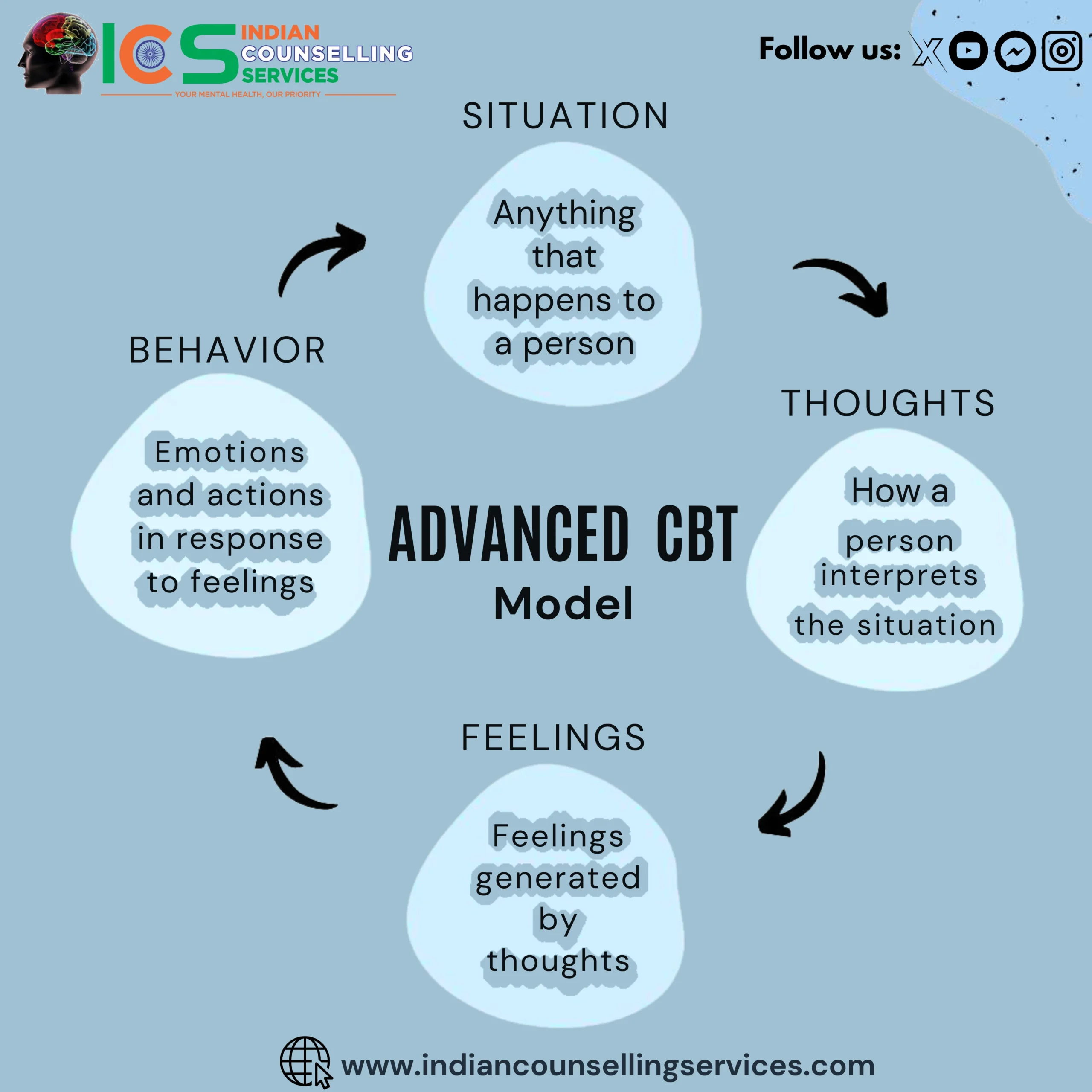
How Can a CBT Course Help You Feel Better?
Cognitive Behavioral Therapy (CBT) is a proven, practical approach to improving mental health and emotional well-being. It focuses on the connection between thoughts, emotions, and behaviors, offering tools to identify and change unhelpful patterns. Whether you’re considering a CBT course for personal growth or as part of professional development, it can provide valuable strategies to manage challenges and build resilience.
In this blog, we’ll explore what CBT is, its foundational principles, and the ways a CBT course can help you feel better mentally, emotionally, and even physically.

CBT is a structured, evidence-based therapy designed to address negative thinking and behaviors that contribute to emotional distress. Unlike some other forms of therapy, CBT is goal-oriented and typically short-term. It’s widely used to treat conditions such as:
- Anxiety and stress-related disorders
- Depression and low mood
- Post-traumatic stress disorder (PTSD)
- Phobias and obsessive-compulsive behaviors
- General emotional challenges
The foundation of CBT is the idea that your thoughts, feelings, and actions are interconnected. By modifying negative thought patterns and unhelpful behaviors, you can improve your emotional health and navigate life’s difficulties more effectively.
CBT courses introduce participants to key principles and techniques that can transform their approach to life’s challenges. Whether for self-improvement or professional use, these courses often include:
- Understanding Thought Patterns
Courses explain how distorted or automatic thoughts—such as catastrophic thinking or overgeneralization—can fuel emotional struggles. - Behavioral Strategies
You’ll learn methods like gradual exposure to feared situations or techniques to increase engagement in positive activities. - Tracking and Adjusting Thoughts
Exercises like thought journals help identify harmful patterns and encourage constructive thinking. - Problem-Solving Skills
CBT provides tools for breaking down challenges into manageable steps, promoting a sense of control and capability. - Stress Reduction Techniques
Many courses integrate relaxation strategies, such as mindfulness and breathing exercises, to help calm the mind.
1. Promotes Self-Awareness
One of the first steps in CBT is understanding how thoughts influence emotions and actions. A CBT course helps you recognize patterns of negative thinking and learn how to challenge them. For example, if you often think, “I’m not good enough,” CBT teaches you to examine the validity of this thought and reframe it into something constructive, such as, “I’m working to improve, and progress takes time.”
This increased awareness fosters a more compassionate and hopeful mindset.
2. Teaches Stress Management Tools
Stress is an inevitable part of life, but CBT offers practical techniques to handle it effectively. For instance, you might learn relaxation exercises, such as deep breathing, or strategies to approach stressful situations with a more balanced perspective. These tools can help you regain a sense of calm and control during challenging times.
3. Builds Problem-Solving Abilities
Many people feel stuck when faced with obstacles because they don’t know how to approach them. CBT focuses on breaking problems into smaller, actionable steps. If you’re overwhelmed by a big project, for example, CBT methods guide you to create a plan and tackle tasks one step at a time. This approach reduces anxiety and increases confidence in your ability to handle difficulties.
4. Reduces Harmful Thinking Patterns
Persistent negative thoughts can harm your mental health, but CBT equips you with techniques to change them. Through activities like analyzing evidence for and against a thought, you’ll learn to replace harmful beliefs with balanced ones. Over time, this practice leads to a calmer, more optimistic outlook on life.
5. Strengthens Relationships
The tools you gain in a CBT course can improve your relationships by enhancing communication and helping you set healthy boundaries. For example, you might learn assertiveness techniques that enable you to express your needs without fear or resentment. Healthier interactions contribute to a greater sense of connection and emotional support.
6. Improves Emotional Regulation
Emotions like anger, sadness, or fear can sometimes feel overwhelming. CBT offers strategies to manage these feelings constructively. By identifying and addressing triggering thoughts, you can prevent emotions from escalating. Additionally, mindfulness techniques often included in CBT courses help you stay present and reduce emotional reactivity.
CBT courses are designed to be accessible and beneficial for many people, including:
- Individuals Seeking Self-Improvement
If you want to better understand your emotions, manage stress, or improve your overall mental health, a CBT course can provide the tools you need. - Mental Health Professionals
Therapists, counselors, and social workers can enhance their practice by incorporating CBT techniques to support their clients effectively. - Parents and Caregivers
Learning CBT principles can help you guide children or loved ones toward healthier thinking and coping mechanisms. - Students and Working Professionals
Those in demanding environments can benefit from CBT strategies to manage pressure, improve productivity, and maintain a healthy mindset.
Choosing the right CBT course is crucial to maximizing its benefits. Consider the following factors:
- Accreditation
Opt for courses certified by reputable organizations, particularly if you plan to use CBT in a professional setting. - Qualified Instructors
Ensure the course is led by experienced professionals with a background in CBT and mental health. - Hands-On Practice
Look for programs that include practical exercises, such as case studies or interactive scenarios, to help you apply what you learn. - Flexibility
Online or self-paced options can be ideal for balancing learning with other responsibilities.
Investing in a CBT course is a powerful step toward improving your mental and emotional well-being. The skills and insights you gain can help you navigate life’s ups and downs with greater confidence and resilience. Whether you’re seeking personal growth or looking to help others, CBT provides a roadmap to healthier thinking, stronger relationships, and a more fulfilling life.
Taking a CBT course isn’t just about learning techniques—it’s about transforming how you think and feel, enabling you to live with greater clarity and peace. If you’re ready to feel better, consider exploring a CBT course today.

2 Comments
Transform Your Thinking, Transform Your Life: Explore Neuro-Linguistic Programming (NLP) Courses Today - indiancounsellingservices.in
November 19, 2024[…] Why Should You Consider NLP? […]
Simple Steps to Clear Your Mind and Feel Better - indiancounsellingservices.in
November 22, 2024[…] 2. Write It Down […]